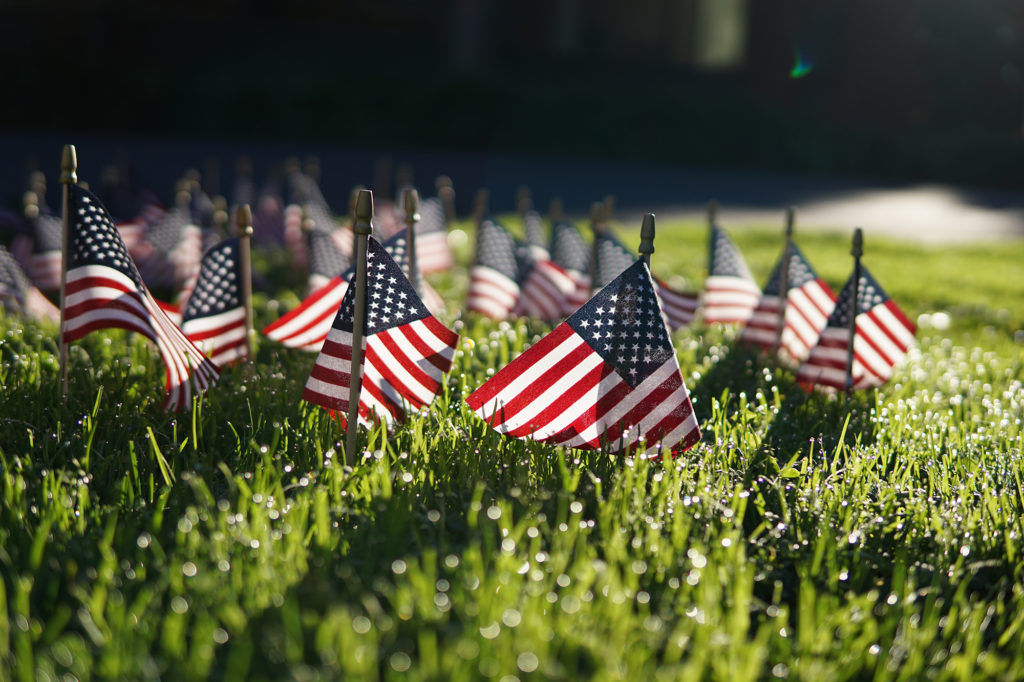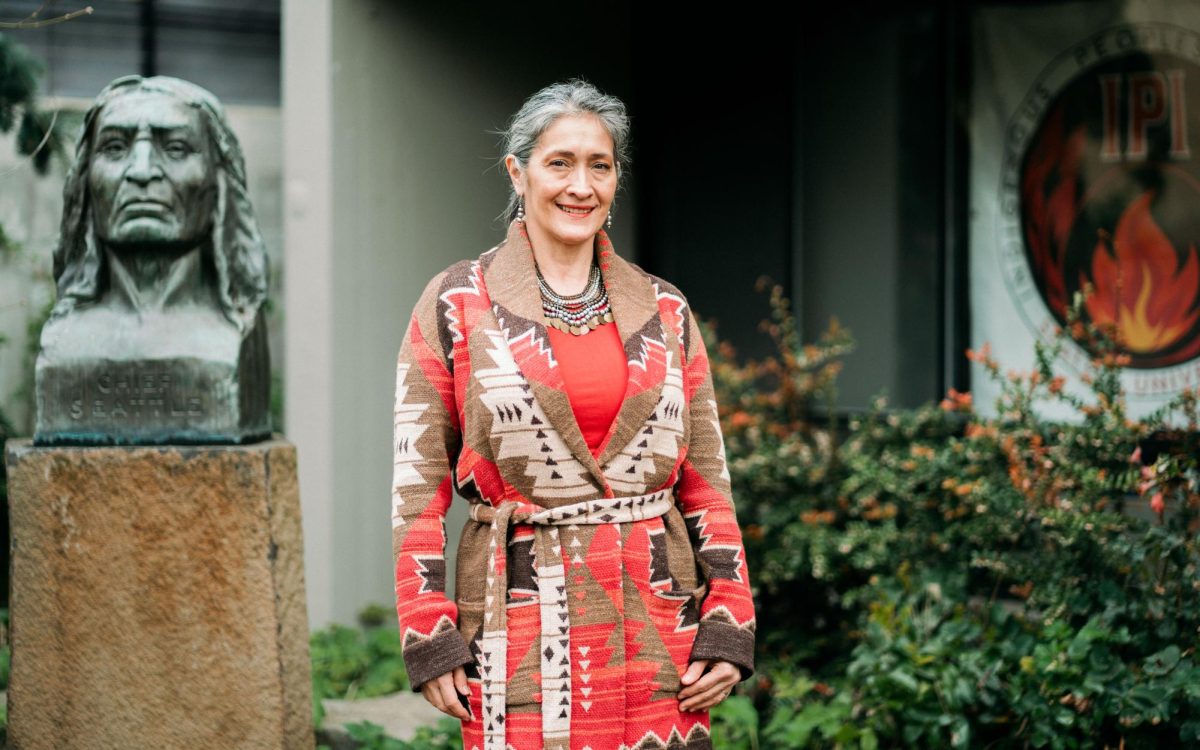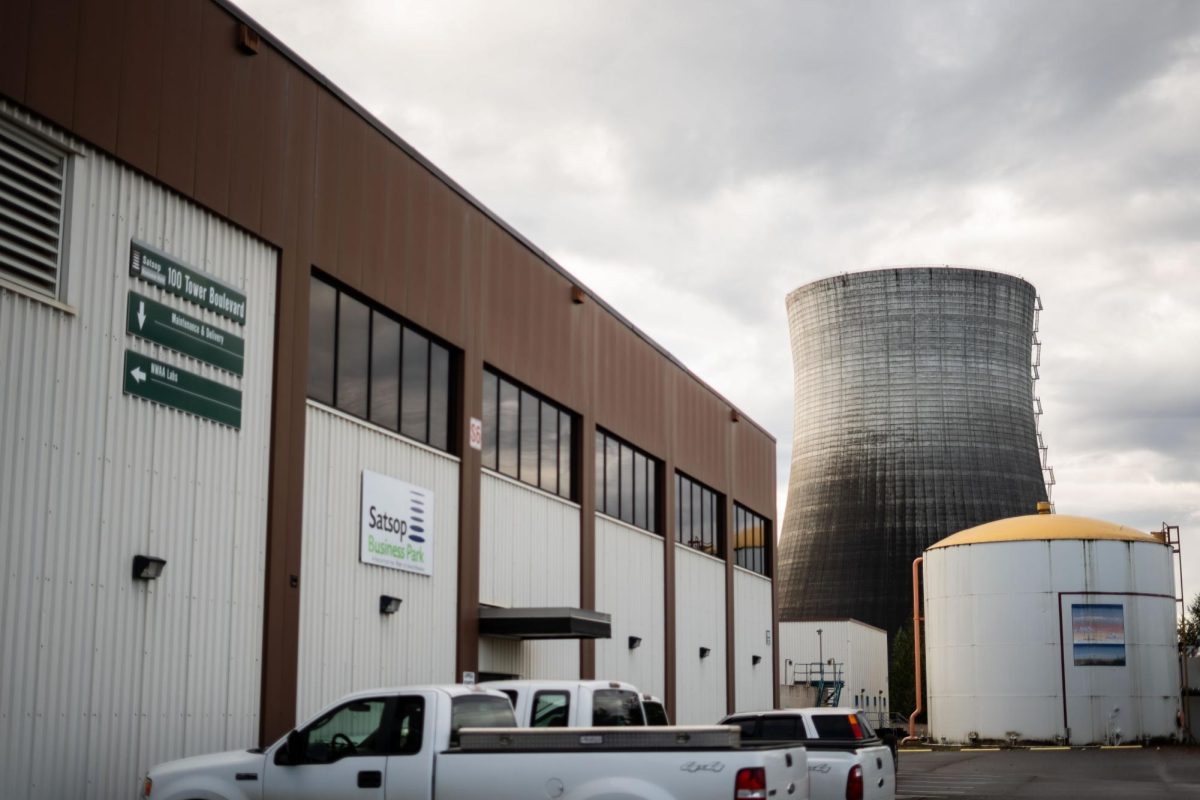American flags decorated the lawn in front of the Seattle University Student Center on Veterans Day last week. There were exactly 155, to commemorate the 22 veterans who commit suicide each day.
Seattle University President Fr. Stephen Sundborg, S.J., sent out an email to the Seattle U community on Thursday:
“Many students, alumni, faculty and staff and others affiliated with Seattle U have served, or are serving, in the armed forces. While I think we would all agree that engaging in armed conflict is not something we would ever hope to see, we can and should take pride in the integrity, professionalism and selflessness with which members of our SU family have served, and continue to serve, our country.”
Meanwhile, the Seattle U Veterans Community continues to advocate for better veteran support on campus and within the community.Creating awareness for this issue reflects the realities of veterans everywhere and how our country and community’s treatment of these individuals influences their lives.
“Everything from mental health to personal life…they’re not receiving the support they need, so a lot of them are turning to suicide,” said SUVC Director Thomas Hove.
For Hove, understanding how suicide has permeated veteran culture is essential to understanding and supporting all those in the military.
“Medical issues such as traumatic brain injury, physical ailments, PTSD…for some veterans the only way to escape the flashbacks, the nightmares, and the feeling of always being on guard is through suicide,” said Hove. “I don’t think there is a military member that hasn’t experienced suicide, whether it be a friend, a comrade, somebody in their battalion or ship.”
While reasons for suicide are personal, the heightened rate within the veteran population can be attributed to many factors.
“Ultimately, we go into the military, and we join a brotherhood and a sisterhood and a community,” Hove said. “And when you get out, it’s culture shock because there is no community.”
Hove spoke of the negative effects of the lack of support.
“Some people are so overwhelmed by the VA health system, or there’s a lack of support, that they turn to drugs and alcohol, or even suicide,” Hove said.
Reasons as to why the systems for veterans in the United States are so unsatisfactory are more complex.Army Veteran and current Veteran Corps Navigator Allen Mikulski feels that even with a new president who supports veterans, little will change to benefit the livelihoods of these people.
“How we’re going to be treated is going to be the same day to day…It’s not going to matter who the president was, or is now,” Mikulski said. “Obama said he would help veterans, Drumpf said he’s going to help veterans, and yet the Veteran Administration still has backlogs, and suicide problems, and we still have all these issues.”
Hove said current systems are not working to abolish the stagnant progress for the treatment of veterans.
“The Veterans Advisory Council is made up by mostly civilians, people who have not experienced military life, and they’re the one’s making decisions,” Hove said. The dissonance between the civilian and veteran community is the crux of most issues for veteran lives.
“After the time I spent away, coming back it feels like it’s completely different. Like I’m foreign in my own country. And in trying to adapt to it, you’re left with habits that were required of [you] when you’re deployed, and they linger with you,” Mikulski said.
“Society has to learn to adapt to veterans who have experienced trauma, and live with this and welcome them back into society rather than us trying to adapt ourselves,” Mikulski said. “It’s not as easy as just getting over a cold where you can just take a pill and have it go away.”
He also emphasized the discernment between what helping a veteran looks like now, versus how to actually make a change. “It’s a ‘thank you for your service,’ ‘I’ve got the magnet on my car,’ ‘here’s a free meal.’ There’s no actual care or consideration being given. It’s all sugar-coating and no action,” Mikulski said.
According to Hove, Seattle U mirrors this on campus.“There is no support system. There is so much lacking. Seattle University has literally done the bare minimum in providing for our veterans,” he said, explaining that this reflects in the lives of veteran students.
“At SU, I was expecting more of a community,” Mikulski said. “I’m ten years older than most undergraduates, so there’s not much of a connection there.”
As for leading this change on campus, Hove suggests we start first by listening to veterans. “First thing is education…It’s being mindful of the things you ask,” Hove said. “Advocate, educate yourself because at some point in your life you will come across a veteran.”
Mikulski echoed this sentiment. “[Students] are growing up learning to be adults, while veterans are learning to be people again,” he said. “We need to do the same thing that we always need to be doing, which is recognizing that we’re different.”
Madeline may be reached at
[email protected]












